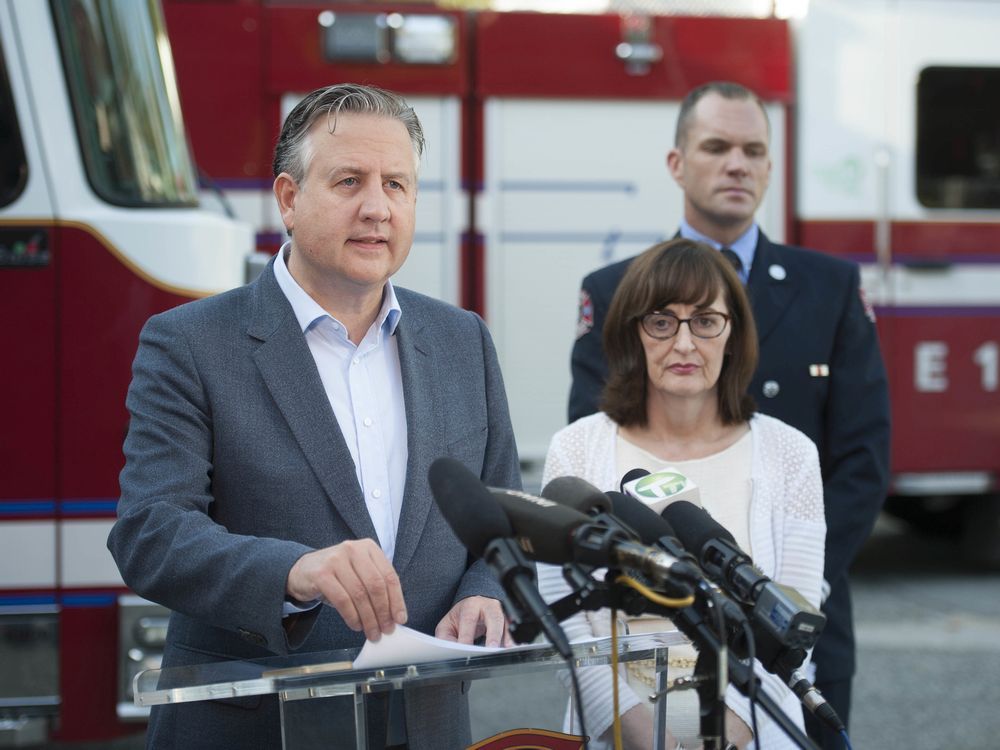Municipalities back Vancouver motion to push Ottawa for safer drugs

Credit to Author: Nick Eagland| Date: Sat, 14 Sep 2019 00:54:18 +0000
Local governments across Canada will press the federal government to increase access to safer drugs, and declare a national health emergency in response to the fentanyl-driven overdose crisis, after a motion by Vancouver Mayor Kennedy Stewart was passed Friday.
Stewart’s motion, drafted with his overdose emergency task force, was approved by city council in July. Coun. Rebecca Bligh brought it to a Federation of Canadian Municipalities executive meeting this week.
The motion requires the federation to call on Ottawa to support health authorities, doctors, their professional colleges and provinces to “safely provide regulated opioids and other substances through a free and federally available Pharmacare program.”
The federation will also demand that the federal government declares a national public health emergency and provides exemptions to the Controlled Drugs and Substances Act, so that cities and towns can run pilot programs which prioritize a move toward a “safe” drug supply.
Stewart said Friday that there was some division among the federation’s membership over the motion but it passed following an effective speech by Bligh. He hopes it will “shift the national dialogue toward a safe supply” during the federal election.
He wants the substances act exemptions to allow health professionals with a non-profit organization to distribute diacetylmorphine, which local research has shown can be an effective treatment for chronic, relapsing opioid dependence.
Stewart met with Prime Minister Justin Trudeau two weeks ago and told him what Vancouver needs in order to replace fentanyl-tainted street drugs with a safer, regulated supply, he said.
“It was a private conversation but I can say that I left the conversation in good spirits,” Stewart said. “I was definitely heard and that was very important.”
Stewart said front line responders are fatigued, people are experiencing multiple overdoses and suffering brain injuries, and the city and province desperately need the federal government to step up.
“We’re going to have to take it to the next level here. We’re reducing overdose deaths but overdoses are increasing. Just not dying isn’t good enough,” he said.
“It’s got to be life and hope for people.”
Karen Ward, a drug user and advocate for others who use drugs, helped with the motion and was pleased the municipalities passed it.
“If a province is a bit hesitant, the idea is that this will give a city the power to take rapid action — and individual doctors, in fact,” she said.
“It’s a necessity to have safe supply at this point because the supply has become so contaminated everywhere.”
Ward said the federation can now send a clear message to Ottawa that municipalities want the power to treat the overdose crisis “like a real” public health emergency.
“This is one way to get them to talk about it, face it squarely and acknowledge this massive disaster, and say look, we need to change our (approach),” she said.
“We need to take it as seriously as possible. It’s a health issue. It’s also a justice issue.”
According to the federal government, there have been more than 9,000 apparent opioid-related deaths across the country since 2016.
Illicit drugs killed 1,533 people in B.C. in 2018 and 538 in the first half of 2019, according to the B.C. Coroners Service.